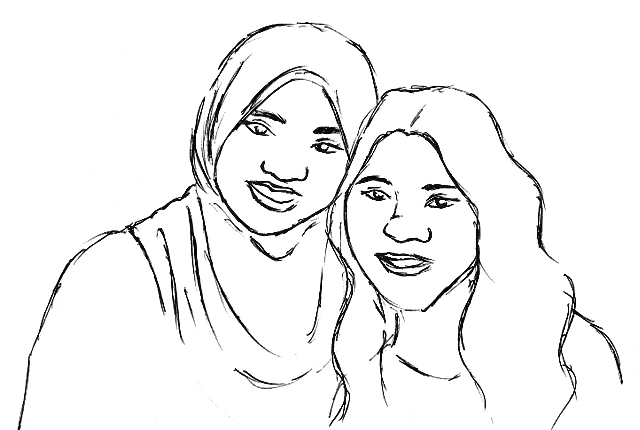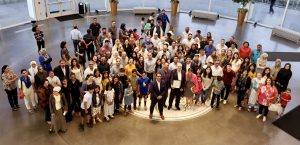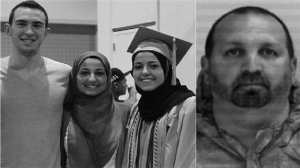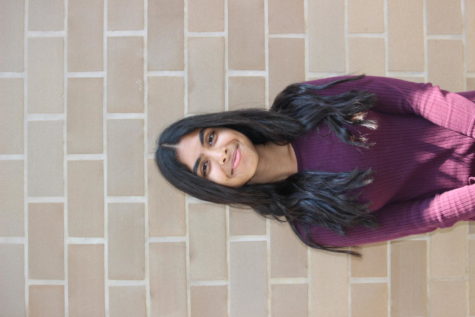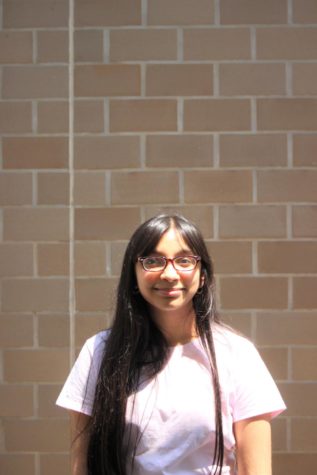Why my hijab does not define my faith
My hijab does not define how I practice and follow my religion.
February 17, 2020
There I stood, with the hijab in my hands. My head was itching and my mind was struggling, debating whether to wrap this piece of fabric around myself. It was an early November afternoon and in the back of my mind ran two scenarios. The first included me being myself and going to the Muslim party without the hijab, in which many adults may or may not have judged my faith. Scenario two included me being the “perfect” Muslim daughter and wearing the hijab.
Before I continue in further detail, a hijab is a piece of cloth worn by Muslim women to cover their heads starting from their scalp to the sideburns. We wear it for religious purposes, a tradition which many Muslim women find as a way to get closer to God.
I stood in confusion as to the purple scarf wrapped around my head, covering my newly, perfectly straightened hair. My family was yelling at me to get into the car, as my eyes filled with tears because I was so confused about what I was doing. I had chosen scenario two and walked downstairs with the hijab on.
From that moment on, I have always questioned my adherence to my faith and if I am considered a good Muslim or not. Many people have approached me and asked, “You are Muslim, right? Why don’t you wear a hijab?” All of these questions wrapped in my head all the time led me to the question: “What does a hijab mean to me?”
To each and every person, religion is how he or her takes care of it and grows from it. In an interview with Sabina Zafar, the Vice Mayor of San Ramon, in early September, she explained that “she does not wear her religion on her sleeves but still has a big heart.”
After three years of people questioning me, as a 10th grader, I finally realized what my religion means to me — it means to make me be the best person I can possibly be. What I mean by that is to be satisfied with yourself most nights, to smile at people in the hallways, to be kind and considerate. When I was younger, my dad used to always tell me, “I can have a million dollars but if I am not well-grounded, that million dollars can turn into zero.”
It’s because of this feeling of empowerment that many of my friends started wearing hijabs at the beginning of high school.
“To me, it’s like wearing a shirt or pants; it’s about modesty to me, and I don’t do this to show everyone how close I am to God. Rather, I am showing myself how close I am to God,” Sadia Hussain, a junior at Dublin High School, said.
Now when people ask me, “Why don’t you wear a hijab?”, I simply reply that I have other ways to get closer to God. It frustrates me that many people continue to ask why I don’t wear a hijab when the fact of the matter is that a hijab does not signify how much of a better Muslim I am compared to someone who does wear one.
According to the Washington Post, it is a myth that practicing Muslims have to wear a hijab. Non-practicing Muslims choose not to wear one. Shayreen Izoli has highlighted in her blog MuslimGirl.com, “While the hijab is indeed a woman’s obligation in Islam, it is not a pillar of Islam,” which means that although a hijab is an obligation, not wearing one does not distance you from God or your religion.
However, the meaning of a hijab is not what many people think it is. Many people believe that women feel oppressed to wear a hijab and to cover their bodies. In reality, each woman who decides to wear a hijab makes of it what she will.
“A hijab does make me feel empowered, it makes me feel as I have control over my own body, and I have every right to do with it as I wish. Deciding to cover my body is the same as someone deciding not to. It is a choice over my own body, which is why I feel empowered,” an anonymous freshman at Dublin High said.
At the end of the day, everyone represents his or her religion differently. While some may choose to cover their body and be modest, others may decide to show their hair and practice their religion differently. My proximity to my religion comes from being a good person and smiling at people every day in the hallway. However, to Sadia, it is to be modest as a way to be closer to God. To each person, it is their own wish and it is incredibly important to respect that person’s wish. Further it can be a touchy subject to continuously ask.


